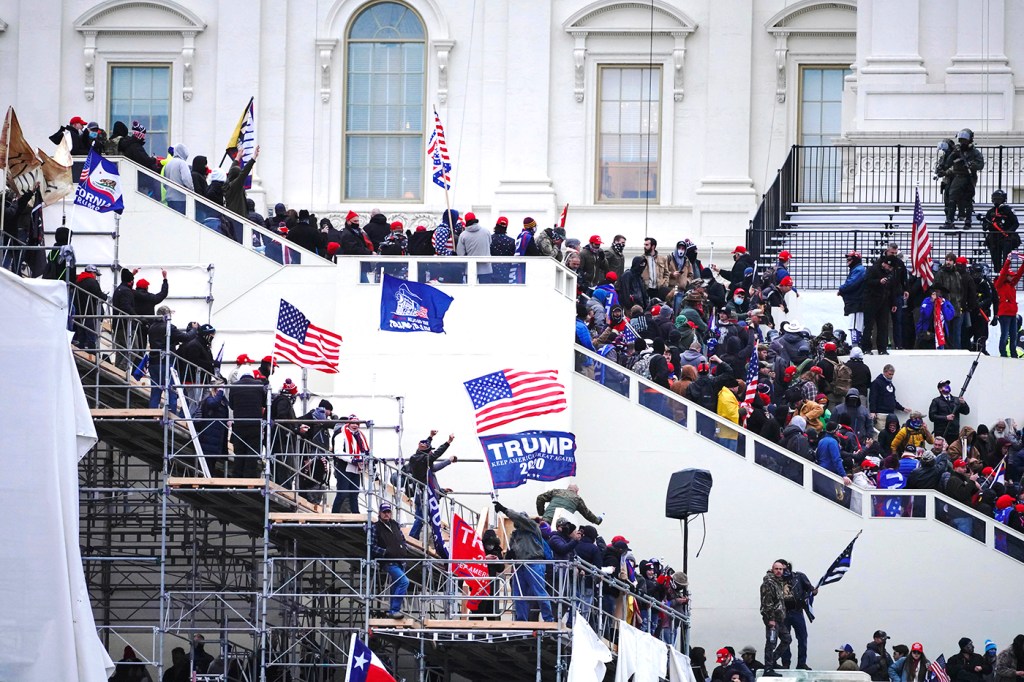A year after the Capitol insurrection, faith in democracy wanes

A year after a mob of people stormed the U.S. Capitol in an attempt to disrupt the formal certification of President Joe Biden’s electoral victory, Americans’ faith in the country’s electoral process and its democracy writ large have only fallen.
Large swaths of the electorate still think that the 2020 election was rigged, and over the last year, a modest number of people have indeed lost confidence in the fairness of that election, according to a new U.S. study.
“Every single one of our predictions from January 2021 came true,” says David Lazer, university distinguished professor of political science and computer sciences at Northeastern, and one of the principal investigators on the study. “What we’re seeing is that while there isn’t a ton of explicit support for storming the Capitol, there’s a notable ambivalence among Republicans, driven in part by a very strong belief that the election was stolen.”

David Lazer, distinguished professor of political science and computer and information science. Photo by Adam Glanzman/Northeastern University
Lazer is part of a team of researchers from Northeastern, Harvard, Northwestern, and Rutgers universities that comprise the Covid States Project. The team conducted a survey of public sentiment immediately after the Jan. 6 insurrection in 2021, and issued a follow-up study a year later.
The researchers surveyed 15,269 people in the U.S. across all 50 states plus Washington, D.C., between Dec. 22, 2021, and Jan. 5, 2022. What they found reveals stark differences between Democrats and Republicans, as well as a drop in Americans’ faith in its political institutions overall.
Over the last year, Republicans and independents became more ambivalent about the Capitol riot—opposition to the event dropped by 11 percentage points among members of the GOP and by 8 percentage points among independents, but held steady among Democrats.
This warming attitude, Lazer says, may be explained by a parallel belief among voters that the 2020 presidential election was stolen from Republican candidate Donald Trump, who was the incumbent at the time. The latest data show that a modest number of people across all political affiliations—3 percent to 4 percent of those surveyed—expressed less confidence in the fairness of the election this time around than they did last year.
But the belief is especially strong among Republicans and independents. Sixty-two percent of Republicans believe that if the votes had been fairly counted, Donald Trump would have won the 2020 election, while only 18 percent disagree with that sentiment. Independent voters lag only slightly behind—54 percent believe Trump would have won the election if it were a fair contest, while 21 percent disagree.
Compare the figures to those of Democrats: Only 5 percent of Democrats surveyed believed Trump should have won, and 88 percent don’t.
“If you sincerely believe that the election was stolen, it becomes the predicate for lots of other things,” Lazer says. “At minimum, it becomes the predicate for taking equal and opposing action; at the extreme end of the continuum, it could become the predicate for the kind of violence we saw last year.”
Looking back, Lazer says it’s clear that the particular circumstances of the 2020 election created a “perfect storm” that crystallized distrust of the democratic process among people who already may have had misgivings.
COVID-19 precautions meant a huge number of people voted by mail instead of in person, and those who mailed in their ballots bucked historical trends. In a given election, more Republicans typically vote by mail than Democrats; in 2020, it was Democrats who did so. As a result, Trump appeared to be in the lead on election night, before all the mail-in ballots had been counted.
Then there was Trump himself, whose “stop the steal” campaign culminated in a speech on Jan. 6, 2021, during which he posited again and again that Biden’s victory was the result of a rigged election “stolen by emboldened radical-left Democrats.”
“There was a sense in which you couldn’t have written a political thriller like this because it just wouldn’t have been plausible,” Lazer says. “There was already distrust in elections for some people, and this was like throwing gasoline on a fire. Everything just seemed to fit that narrative so neatly.”
For media inquiries, please contact Shannon Nargi at s.nargi@northeastern.edu or 617-373-5718.





